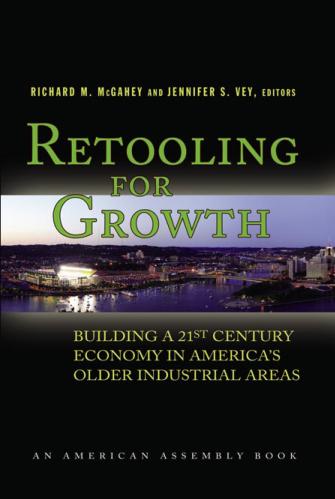Studies in this week’s Hutchins Roundup find population aging reduces per capita GDP growth when nominal interest rates are constrained by the zero-lower bound, undoing the expansion of Medicaid eligibility to adults would not increase employment, and more.
Want to receive the Hutchins Roundup as an email? Sign up here to get it in your inbox every Thursday.
Population aging reduces per capita GDP growth when nominal interest rates are constrained by the zero-lower bound
Using data on 168 countries from 1990 to 2015, Gauti Eggertsson and Manuel Lancastre of Brown University and Lawrence Summers of Harvard University document that countries with more rapidly aging populations had higher GDP growth per capita over the last 25 years. Since 1990, real interest rates have also been declining as populations have aged, suggesting that capital deepening explains the positive relationship between aging and GDP growth per capita, the authors argue. As a country’s population ages, savings and, therefore, investment in productive capital per worker rise, which increases output per worker. This mechanism relies on real interest rates to adjust downwards as needed to make investment equal savings. When real interest rates are unable to adjust, for example due to the zero-lower bound on nominal interest rates, aging leads to secular stagnation. Indeed, the authors find that aging led to slower growth in GDP per capita after 2008 in those countries that were constrained by the zero-lower bound.
Undoing the expansion of Medicaid eligibility to adults would not increase employment
Because of a change in the eligibility rules for Tennessee’s Medicaid program, roughly 170,000 people lost coverage between July and September 2005. Thomas DeLeire of Georgetown University uses Survey of Income and Program Participation data from January 2004 to August 2006 to examine the effect of the Medicaid disenrollment on employment, health insurance coverage, health, and health care utilization. DeLeire finds that the eligibility change reduced the fraction of adults in Tennessee covered by Medicaid by more than 5 percentage points and increased the fraction of uninsured adults by just under 5 percentage points. A small increase in Medicare coverage, not a rise in private insurance enrollment, explains the difference in the sizes of these two effects. There is no evidence that employment rates increased in Tennessee following the disenrollment, says DeLeire. However, self-reported health and access to medical care worsened as doctor and dentist visits declined by 14 percent. These findings suggest that undoing the Affordable Care Act’s Medicaid eligibility expansion would reduce health insurance coverage and health care access, but would not increase employment.
Trade with China increases US employment and wages
Zhi Wang of George Mason University, Shang-Jin Wei of Columbia University, and Xinding Yu and Kunfu Zhu of Beijing’s University of International Business and Economics use U.S. commuting zone-level data from 1990 to 2014 to explore how exposure to trade with China affects local employment and wages. The authors find that direct competition with Chinese imports reduces manufacturing sector employment. Employment also falls at U.S. firms that do not compete directly with Chinese imports but sell their output to manufacturers that do. However, these employment declines are more than offset by employment gains at non-manufacturing firms that use imported inputs from China, so that trade with China actually increases local employment overall. In addition, the authors find that 75 percent of workers in an average region experience real wage growth because of trade with China.
Chart of the week: Real wages in the US are now lower than they were last July because of higher consumer price inflation

Quote of the week:
“In terms of Brexit specifically, let’s be clear: It takes 50 percent of my time now. … But it should, because the issues are incredibly important. We have a responsibility, at a minimum, to manage through the downside if there were a disorderly outcome, something unpredictable. We have to take as many of those risks off the table, make sure the system functions as well as possible. We’re doing that. … I think that what we did [before the Brexit referendum] as an institution and specifically the FPC [Financial Policy Committee] —the macroprudential authority—was take a look at what could happen and then take a series of steps to mitigate those risks,” says Mark Carney, governor of the Bank of England.
“This institution, I will say this, was very well-prepared for the referendum result. We had put in place everything we needed to do with the major central banks around the world. We had used our supervisory authority to get the banks in a position for a vote they never expected to happen. They were not happy that we were moving them into position to be resilient for that…. We did think… that the exchange rate would go down. … It did. We thought inflation was going to rise, we thought the economy would slow. And all of those have transpired…. And because the financial system was well-prepared, the transition has been better. And we instantly turned to supporting the government as required during those negotiations…. Within nine months we could have a disorderly Brexit stress test. We’re living these stresses.”
The Brookings Institution is committed to quality, independence, and impact.
We are supported by a diverse array of funders. In line with our values and policies, each Brookings publication represents the sole views of its author(s).









Commentary
Hutchins Roundup: Aging populations and GDP growth, Medicaid disenrollment, and more
August 16, 2018